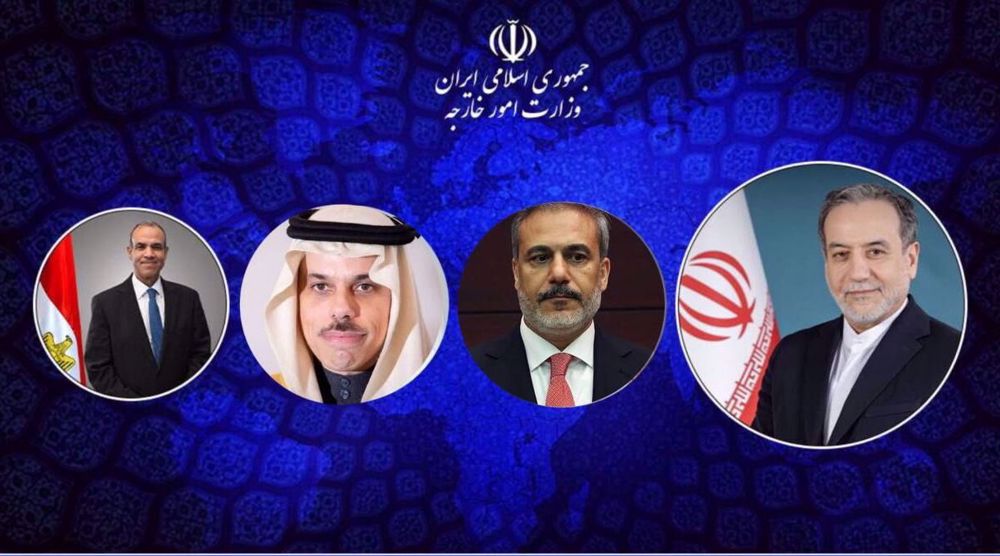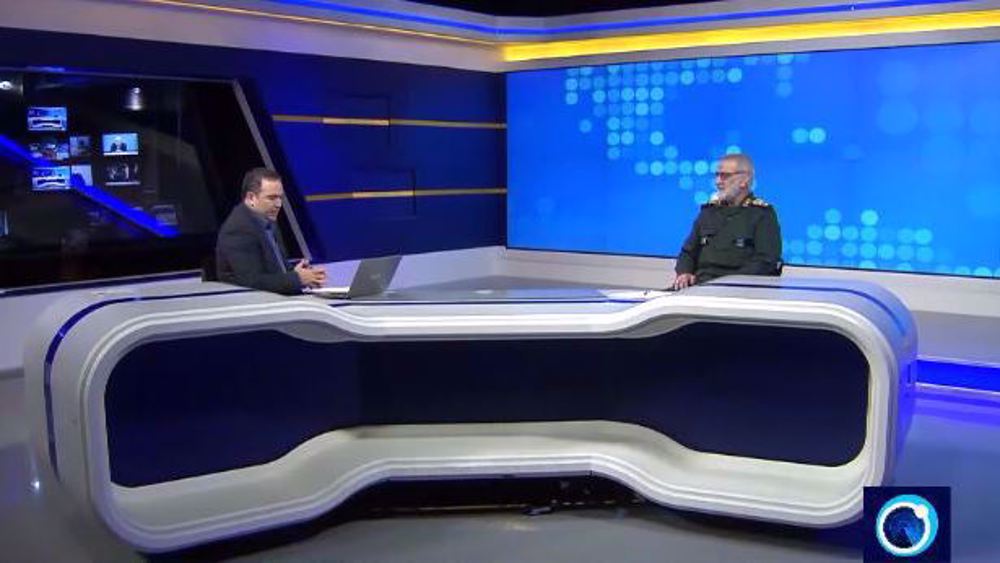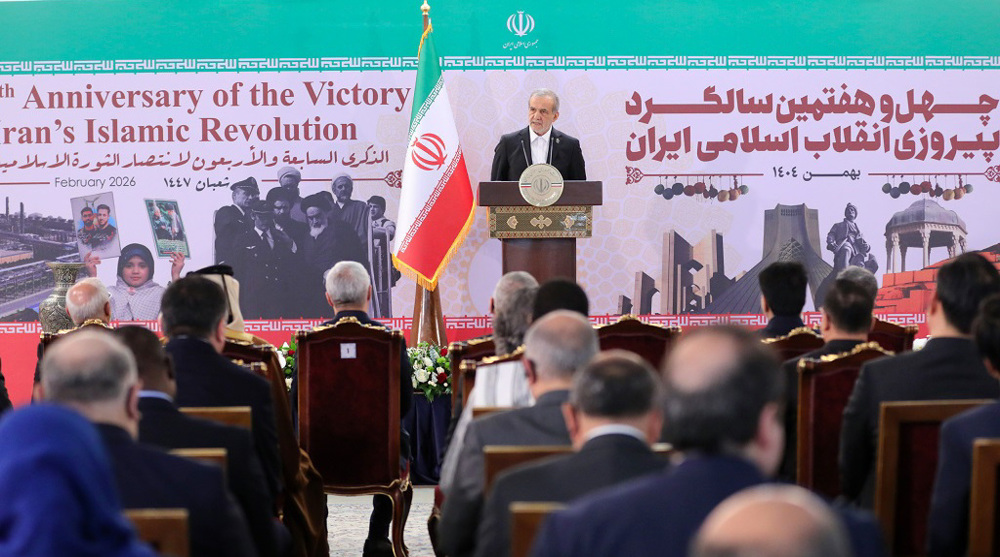UAE cannot buy security through normalizing ties with Israel: Iran FM
Iran’s foreign minister says despite what the rulers of the United Arab Emirates think, their country cannot become more secure through a recent deal concluded between Abu Dhabi and Tel Aviv for the normalization of relations between the UAE and Israel.
Mohammad Javad Zarif made the remarks in a speech delivered at the Faculty of World Studies at the University of Tehran on Monday, the fifth and final part of a five-part course in international relations entitled, “World in Transition,” which is being offered by Iran’s top diplomat.
“The United Arab Emirates has turned to Israel to buy security, while Israel is unable to keep even itself secure,” Iran’s top diplomat said.
Israel and the United Arab Emirates on August 13 reached a deal that will lead to a full normalization of diplomatic relations between the two sides, in an agreement apparently brokered by US President Donald Trump.
Under the agreement, Israel has allegedly agreed to "temporarily" suspend applying its own rule to further areas in the occupied West Bank and the strategic Jordan Valley that Prime Minister Benjamin Netanyahu had pledged to annex.
According to the accord, Israeli and UAE delegations will meet in the coming weeks to sign bilateral agreements covering sectors including investment, tourism and direct flights and the opening of reciprocal embassies.
Iran's Foreign Ministry vehemently condemned the deal aimed at normalization of relations between Abu Dhabi and Tel Aviv, calling it an instance of “strategic folly” that will only end up strengthening the regional resistance front.
“Undoubtedly, the agreement will result in fortification of the resistance axis in the region,” the ministry said in a statement.
“History will reveal how this strategic mistake by the Zionist regime and this act of backstabbing by the Emirates against the Palestinians and, by extension, the entire Muslim community, will conversely result in fortifying the resistance axis,” the ministry added.
Read more:
- UAE opens phone services with Israel, unblocks Israeli websites following normalization accord
- Palestinians rage at Israel-UAE ‘normalization deal’
- Palestinians in Gaza slam UAE-Israel normalization deal
- Thousands rally in Yemen against UAE-Israel normalization deal
Elsewhere in his remarks, the Iranian foreign minister said regional countries should realize and accept that they cannot purchase security, but it should be established by regional states.
"You cannot be secure if your neighbors are not secure …We should understand that we can compete with each other, but cannot dominate or delete each other," Zarif emphasized.
He said neighboring countries live closely together and have no other option, adding, "No one can be crossed out from the region, but foreign powers can be expelled."
He emphasized that countries in the Middle East region are spending the highest amount of money on the purchase of arms, noting that the Persian Gulf Cooperation Council's member states allocated some 116 billion dollars to buying lethal weapons in 2017.
The Iranian foreign minister added that Saudi Arabia is the world's third largest arms importer after the United States and China, saying, "We, in the Middle East, are in need of a powerful region rather than a powerful individual."
Iran's top diplomat said cooperation among regional players would lay a suitable ground for enhanced trade ties and political interaction in the region, which can then be expanded to relations with countries outside the region.
Earlier on Monday, the Iranian foreign minister said in a tweet that his American counterpart, Mike Pompeo, is trying to “flood our region” with all kinds of US weapons even when his country’s own laws prohibit such a measure.
Zarif said, “Outlaw @SecPompeo has no qualms about violating his own country's laws” while alluding to Pompeo’s meeting with Israeli Prime Minister Benjamin Netanyahu in Jerusalem al-Quds by adding, “Standing next to World's #1 nuclear threat, he declares his desire to flood our region with even more US weapons.”
Palestinian activist in ICE detention 'missing' after medical emergency
Any enemy miscalculation will be met with ‘unprecedented’ response: Iran army chief
VIDEO | Press TV's news headlines
Hamas urges mediators to curb Israel’s violations of Gaza ceasefire
Islamic Revolution anniv. rallies to span 1,400 cities, draw 7,700 media personnel: Official
Latifa Abouchakra briefly arrested by Midlands Police
Iran advises US to act independently of ‘destructive’ Israeli influence amid nuclear talks in Oman
VIDEO | 'Not in my name': Pro-Palestinian rally held in Sydney against Israeli president's visit















 This makes it easy to access the Press TV website
This makes it easy to access the Press TV website